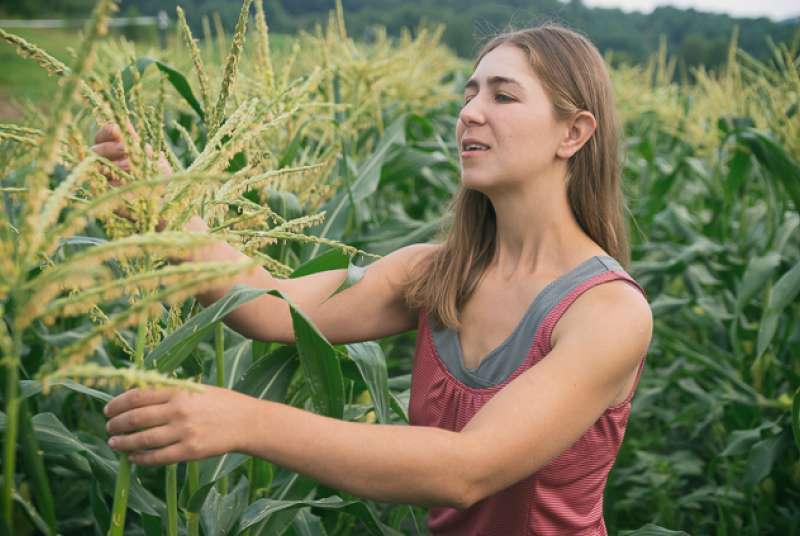
Interviews With Young Alumni
Big Green Thumb
Your farm follows the Community Supported Agriculture (CSA) model of food distribution. How does that work?
Customers sign up early in the season and pay ahead of time, and we try to grow enough so that they end up with around 30 percent in savings over the retail price for organic produce. It’s great for us because we’re able to plan ahead, we know exactly how many people we’re growing for and we get some money upfront in the spring when we’re investing a lot in seeds, fertilizer, animals and so on. About two-thirds of our shareholders come right to the farm to pick up their produce every week. We also offer deliveries to the College, the hospital and a few local businesses.
What did you harvest this week?
Today’s pickup is delicata squash, sweet peppers, watermelon, leeks, lettuce, kohlrabi, slicing tomatoes and cherry tomatoes. We’re getting toward the end of the tomatoes and starting to transition into the hardy fall foods like winter squash, kale, onions and root vegetables.
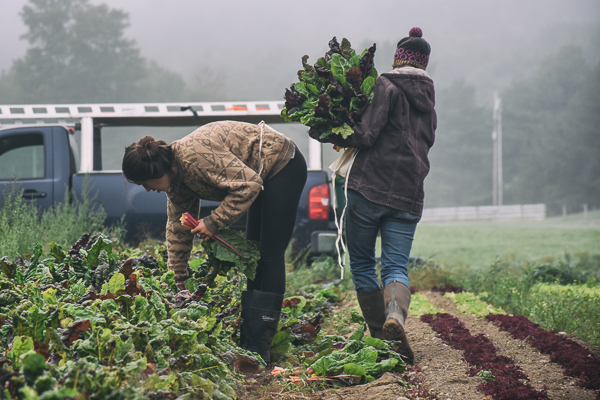
Did you get much farming experience while you were at Dartmouth?
I grew up on a homestead, more or less, in Grafton, Vermont. My dad was a “log and lumber man,” and he and my mom always had a big garden and usually some animals, too. When I first got to Dartmouth it was a culture shock. I cast around to look for my people, and I found them partly in the Outing Club and partly at the organic farm. The first year that I worked at the farm, we got a CSA up and running for students and faculty.
Were you planning to go into farming as a career?
I was an environmental studies major, and I joined the teacher education program in the fall of my junior year. I was planning to go into middle school classroom education in general science. I spent a semester student-teaching. I loved the kids, but I was turned off by the bureaucracy and the feeling from some of the teachers that it was just a job without a lot of joy in it. At the end of that semester Chuck Wooster ’89 offered me a job at Sunrise Farm in White River Junction, Vermont. He had been my alumni mentor through a Tucker Foundation program and I had worked at Sunrise as an off-campus job while I was still taking classes.
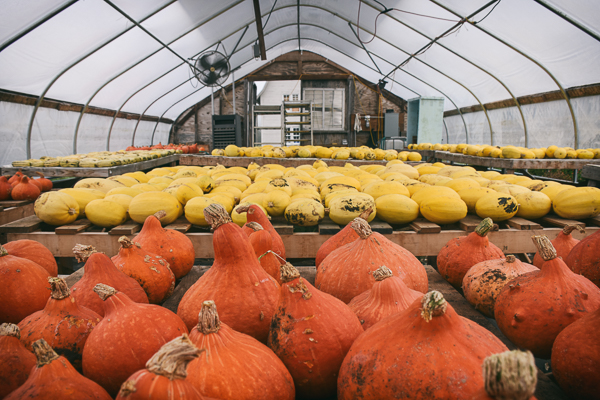
Did anyone else at Dartmouth influence your decision to go into farming?
Scott Stokoe, who was head of the organic farm when I was a student, taught me about the intellectual side of farming and about the practical skills, too. He saw that I was on this path before I did and he made sure to check in with me. I always remember his warning, “If you’re farming because you just like to be outside on a sunny day, maybe don’t head down this path. But if you’re farming because you’re really committed to building the soil and you’re in it for the long haul, then okay, let’s talk.” Professor Ross Virginia was also very supportive. I took his ecological agriculture course and also got to be a teaching assistant for him during my senior year. Professor Susanne Freidberg’s geography class on food and power was also instrumental in my understanding of food systems.
What were some of the lessons you took away from Sunrise?
I learned how to drive a tractor! I also learned a lot about day-to-day crop production techniques and about how to make the diversified aspects of a farm fit together. Before working with Chuck, I didn’t have any experience with the business end of farming. We worked together on Quickbooks records and planning for investments and I helped with a lot of the infrastructure to increase the scale of the Sunrise CSA.
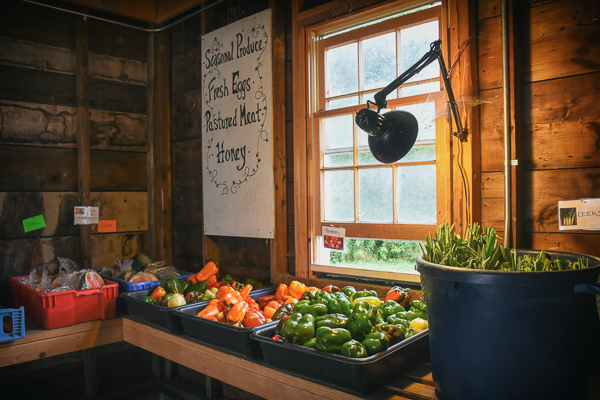
What do you offer at Sweetland in addition to vegetables?
We raise our own pork and chicken. We have a couple beehives in our young fruit tree orchard and offer honey. We make about 5,000 square bales of hay each year. Then we have some products from other local farmers and food producers for sale in our CSA barn: maple syrup, eggs, beef, goat cheese, preserves and bread.
It sounds like your members could do all of their grocery shopping at your farm.
That’s the goal. This year we’re doing pick-your-own pumpkins. One of the things that we’re trying to encourage is for our customers to really feel like they’re a part of the farm, so to have them come out and get their hands dirty and bring their kids to see how a pumpkin grows—that is really important. It’s also good for us, labor-wise, because we don’t have to lug thousands of pounds of pumpkins out of the field!
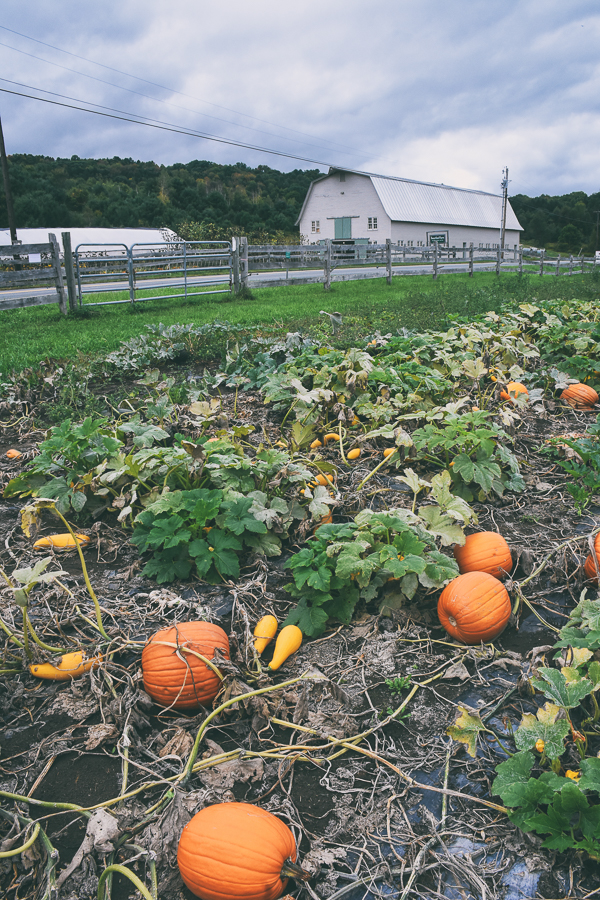
The farm is not certified organic. What was the reasoning behind that decision?
Because our customers can come right here and vet our growing practices on their own, we felt that the extra time and money to do the paperwork for organic certification wasn’t the best place to put our energy. If we were doing a lot of wholesale and needed the organic sticker, then that might be worth it. Philosophically, it allows us to do our own research about sustainable methods and, rather than having to follow the go-to list of approved practices, we’re able to be more nuanced about it. For example, using copper as a fungicide is a common organic practice. A lot of farmers will use pretty heavy doses of copper on their tomato plants to keep blight out. Even though it’s acceptable according to the organic standards, we’ve decided that it doesn’t feel good to spray heavy metals onto our soils and onto the food that we eat.
Sweetland is in Norwich, Vermont, just a short drive from campus—do students visit?
Professor Freidberg has brought her “Food and Power” geography class out here every year. It’s a chance for the students, who’ve been talking about food issues in a heady, academic way, to get their feet on the ground. It’s a wake-up call for the economics and complexity behind all of it. One student contacted me about teaching a mini-course on the ethics of eating meat. He wants to bring the class here to witness, and maybe participate in, one of our chicken slaughters. I’m looking forward to being able to offer more in terms of internships and experiences for students to be on a real farm.
What advice do you have for undergrads or young alumni who might be interested in pursuing farming as a career?
My advice is to take a serious look at working on someone else’s farm. There’s been an incredible movement of new farms in the last 10 years, which is awesome, but at some point the market becomes saturated. Not only does that mean that there’s less opportunity for new businesses to find their foothold and succeed, but it also means that there’s a ton of farms out there that need committed labor, workers who can not only wield a scuffle hoe but can also think about different markets and best practices and how to improve the efficiency of the farm.
What keeps you going?
It’s a really good question, because in our start-up years we are struggling financially. My partner, Chris [Polashenski ’07, Adv’11], and I have a lot of sit-downs about why we’re doing this and whether we should keep going. It’s a real commitment to make this into a thriving business. It also has a lot to do with the lifestyle. We’re proud to be keeping this land in agriculture, rather than see it turn into housing developments or gentleman farmer estates. Having grown up in Vermont, it feels important to carry on the work that my family has been doing for a lot of generations. On a day-to-day basis, we have so many incredible interactions with our CSA shareholders. I’ve had people outright tell me that when they get to the farm, they get to put aside their worries and go pick flowers and watch the pigs and enjoy the land. To be the person providing that is really special.
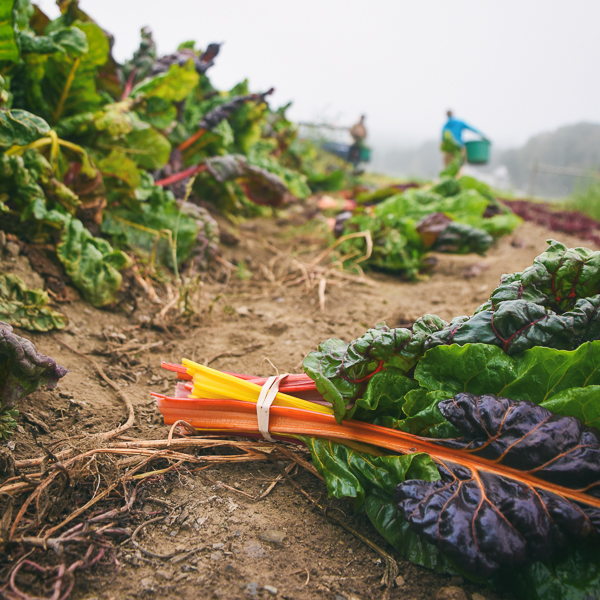
This interview has been edited for clarity and length. Header photo courtesy Eli Burakian ’00.










